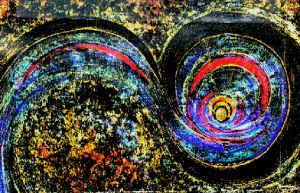 It is a truism that the one thing that doesn’t change in life is change; we are constantly dealing with the unknown. A decade immersed in the performing arts and cultural studies gave me a new perspective on how the modern world deals with change. When directing or acting, I had to accept that great art is not about control. It is about having discipline in the preparation and surrendering during the performance. Management, at least the way I had experienced it, is about controlling the environment to ensure flawless execution and reach the expected results. Management is a powerful means to reach one’s ends, but my artistic journey made me realize that in the modern world, our fear of change and our inability to deal creatively with the unpredictability of change leads us to seek control over the process of life. This means that although management should be about stabilizing our environment to facilitate the natural creative process belying any human activity, we attempt to control the process to secure the results we want; we do everything we can to eliminate the unknown, but in doing so we work against the creative nature of life.
It is a truism that the one thing that doesn’t change in life is change; we are constantly dealing with the unknown. A decade immersed in the performing arts and cultural studies gave me a new perspective on how the modern world deals with change. When directing or acting, I had to accept that great art is not about control. It is about having discipline in the preparation and surrendering during the performance. Management, at least the way I had experienced it, is about controlling the environment to ensure flawless execution and reach the expected results. Management is a powerful means to reach one’s ends, but my artistic journey made me realize that in the modern world, our fear of change and our inability to deal creatively with the unpredictability of change leads us to seek control over the process of life. This means that although management should be about stabilizing our environment to facilitate the natural creative process belying any human activity, we attempt to control the process to secure the results we want; we do everything we can to eliminate the unknown, but in doing so we work against the creative nature of life.
In recent years, neuroscience research has revealed three key facts that may change forever the way we think about and approach creativity:
– Instinct plays a leading role in complex decision making.
– Eighty percent of our grey matter is dedicated to nonconscious thought.
– Imaginative play is one of the most direct means of activating our creativity and problem-solving abilities.
These three discoveries open up unprecedented opportunities for progress, creativity, and efficiency if we only embrace the instinctual and unconscious aspects of the mind and the randomness and chaos of life.
The uncomfortable part of this is that we are not used to relying on instinct and the unconscious, and we are certainly not used to accepting randomness or chaos. We are used to seeing life and reality as linear and logical when they aren’t. Success in modern times mean making a leap from seeing the world as we think it operates to seeing how it really operates. In reality both life and the whole of the human mind operate in a way that is closer to chaos than to linear order.
In my seminars at L’Oréal, SAP, and other companies, I often recount Edgar Allan Poe’s “A Descent into the Maelstrom,” a story that beautifully illustrates this aspect of chaos theory. It describes how three brothers go out on their fishing boat only to be caught in “the most terrible hurricane that ever came out of the heavens.” The storm drives their boat into a powerful whirlpool, the maelstrom of the title. One brother is thrown overboard into the whirlpool and quickly carried under. Another brother goes mad with terror. But the third brother is suddenly struck by the awesome beauty of the maelstrom. With an inner calm he notices that some objects are being spun around at the top of the whirlpool rather than sucked into it. Unable to convey this to his mad brother, he submits himself to the sea, clinging onto a barrel, and rides the maelstrom until it subsides and he is rescued. In the meantime the mad brother, because he fights the chaos rather than submitting to it, drowns when their boat spirals down to the depths. Although the experience turns the surviving brother’s hair white and makes him look older than his age, it gives him a deep insight into the working of nature, and an enduring serenity.
I always remind participants that Poe’s story shows that the way each one of us chooses to handle confusion and chaos may have a huge impact on the final outcome for everybody. Each brother acted his own way and by doing so chose his own final outcome. In Poe’s story, when the third brother decides, in spite of his fear, to give up the fight with the maelstrom, he actually facilitates the organizing principle that creates all the marvels that have evolved in nature. In our minds, it brings reason, feeling, and instinct into balance, if only we have the wisdom to trust it and stop trying to override it.

